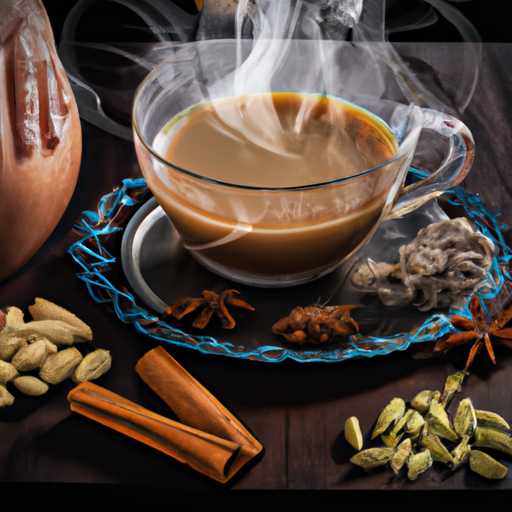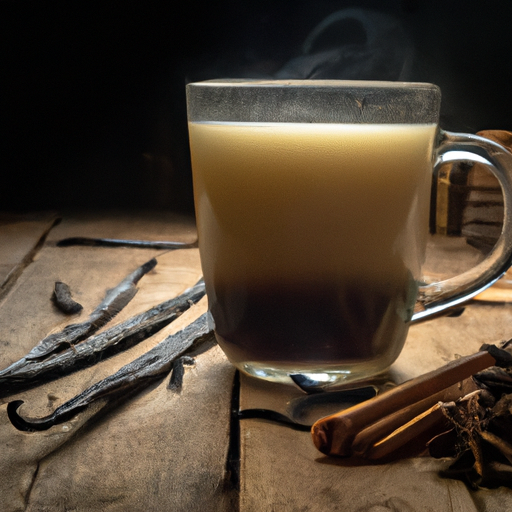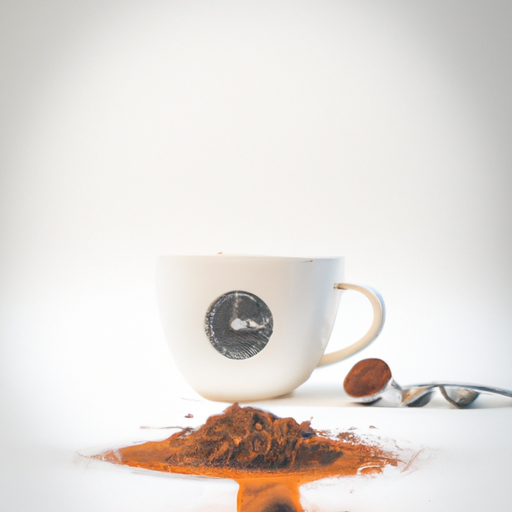Chai tea is unequivocally my preferred drink, and the thought of not having it daily is unimaginable to me. However, the moment I discovered my pregnancy, the immediate concern that arose was if it remained safe for me to keep enjoying chai tea.
As an avid chai tea drinker, the thought of giving it up for nine months seemed unbearable. After doing some research, I discovered that there are both benefits and risks associated with drinking chai tea during pregnancy.
In this article, I will delve into the world of chai tea and its ingredients to help you understand whether or not it’s safe to consume during pregnancy. We’ll explore the effects of caffeine on your developing baby and discuss how much chai tea is safe to drink while you’re expecting.
Additionally, we’ll look at alternative beverages that are safer for pregnant women and provide tips for enjoying your beloved chai safely throughout your pregnancy journey.
Key Takeaways
- Pregnant women should limit their chai tea intake to one cup per day and choose decaffeinated varieties when available to avoid exceeding the safe caffeine limit of 200mg per day.
- Allergic reactions to certain ingredients in chai tea can cause discomfort and harm to the mother and baby, so it’s important to be cautious and consult with a healthcare provider before adding chai tea to your diet during pregnancy.
- Chai tea can offer benefits during pregnancy due to the anti-inflammatory properties of its spices, but it’s important to consider the potential risks of caffeine and allergens.
- Homemade chai tea allows for control of ingredients and reduction of sugar, making it a healthier choice for pregnant women and nursing mothers.
Understanding Chai Tea and Its Ingredients
Chai tea typically contains black tea, spices, and milk, making it a potentially risky choice for pregnant women due to the caffeine content. However, if consumed in moderation and with caution, chai tea can offer some benefits during pregnancy.
The spices used to make chai tea are known for their anti-inflammatory properties and can help reduce inflammation in the body during pregnancy.
To prepare chai tea at home, start by boiling water in a pot on the stove. Add black tea leaves and let them steep for 3-5 minutes before adding spices like cinnamon, ginger, cardamom, cloves or nutmeg. Once the spices have been added to the pot, allow the mixture to simmer for an additional 2-3 minutes before straining out any leftover solids. Finally, add milk or your preferred dairy substitute and sweetener of choice.
Despite its potential benefits during pregnancy when consumed in moderation, it’s important to remember that chai tea still contains caffeine which should be limited during pregnancy. Caffeine has been linked to low birth weight and other complications in newborns when consumed excessively during pregnancy. Therefore it’s recommended that pregnant women limit their caffeine intake to no more than 200 milligrams per day – which equates to about one cup of coffee or two cups of chai tea per day.
Pregnancy and Caffeine
You can’t go a single day without your favorite morning pick-me-up, but did you know that excessive caffeine during pregnancy can lead to complications? As a pregnant woman, it’s important to be cautious about your caffeine intake. While small amounts of caffeine are generally safe for most people, high levels of consumption have been linked to negative effects on fetal development.
So what exactly is considered a ‘safe’ amount of caffeine during pregnancy? The American College of Obstetricians and Gynecologists recommends that pregnant women consume no more than 200 milligrams of caffeine per day. This is equivalent to about one 12-ounce cup of coffee or two cups of tea.
It’s important to keep in mind that the amount of caffeine in beverages can vary widely, so always check the label or ask your barista before ordering.
Given these recommendations, it’s understandable why many women wonder if they should cut back on their chai tea habit during pregnancy. However, the good news is that chai tea typically contains less caffeine than coffee and black tea. In fact, a typical cup of chai tea contains around 50 milligrams of caffeine – well within the recommended daily limit for pregnant women.
But there are other factors to consider when it comes to consuming chai tea during pregnancy which we will discuss in the next section.
Is Chai Tea Safe to Consume During Pregnancy?
Wondering if your favorite warm and spicy beverage is safe to enjoy while expecting? Chai tea has become a go-to drink for many, with its rich and unique flavor profile. However, when it comes to pregnancy, there are some concerns that need to be addressed before indulging in this tasty treat. So, is chai tea safe to consume during pregnancy?
Firstly, it’s important to note the nutritional value of chai tea. Made from a blend of black tea leaves and spices such as cinnamon, cardamom, ginger, and cloves, chai tea can provide antioxidants and anti-inflammatory compounds which can be beneficial during pregnancy. However, it’s vital to remember that due to the presence of caffeine in black tea leaves (albeit in smaller amounts than coffee), moderation is key.
Secondly, research suggests that some ingredients found in chai tea may have fertility-boosting properties. For example, ginger has been shown to improve female reproductive health by reducing inflammation and increasing blood flow to the uterus. Cardamom has also been linked with improved sperm count in men. While these benefits may not directly relate to pregnancy itself, they do highlight the potential advantages of consuming chai tea when trying for a baby.
While enjoying your favorite cup of chai may seem like a harmless pleasure during pregnancy, it’s important, not only for mom but also for the developing baby, to always remember that moderation is key! In our next section on the benefits of drinking chai tea during pregnancy, we’ll dive into how this delicious drink can support you throughout your journey towards motherhood!
Benefits of Drinking Chai Tea During Pregnancy
If you’re looking for a warm and comforting beverage to sip during your pregnancy, it’s worth exploring the potential benefits of incorporating chai tea into your diet. Chai tea is made from black tea leaves and a blend of spices, including cinnamon, ginger, cardamom, and cloves. These spices are known to have anti-inflammatory properties that may help reduce nausea and improve digestion.
In addition to its digestive benefits, chai tea is also rich in antioxidants that can boost your immune system and help protect against cellular damage. Black tea leaves contain polyphenols that have been linked to lower rates of heart disease, diabetes, and certain types of cancer. Drinking chai tea regularly during pregnancy can be a delicious way to increase your antioxidant intake and support overall health.
Overall, drinking chai tea in moderation during pregnancy can provide several nutritional benefits for both mother and baby. However, it’s important to note that some ingredients in chai blends may not be safe for pregnant women. In the next section, we’ll explore the potential risks associated with consuming chai tea while pregnant.
Risks of Drinking Chai Tea During Pregnancy
As someone who’s currently pregnant, I’ve been researching the potential risks of drinking chai tea during this time.
Exceeding caffeine intake limits is one concern, as chai tea can contain high levels of caffeine which can lead to complications during pregnancy.
Additionally, there’s a possibility of experiencing allergic reactions to some of the ingredients in chai tea, such as cinnamon or cardamom.
It’s important to be cautious and informed when it comes to consuming any beverage during pregnancy.
Exceeding Caffeine Intake Limits
It’s important to be cautious about how much caffeine you consume while pregnant, as exceeding the recommended limits can have negative effects on your health and the health of your baby.
Pregnancy and coffee don’t always mix well, but that doesn’t mean you need to give up all caffeinated beverages entirely. Managing caffeine cravings during pregnancy can be difficult, but there are ways to enjoy a cup of chai tea without consuming too much caffeine.
To regulate your caffeine intake, try these tips:
- Stick to one cup of chai tea per day
- Choose decaffeinated varieties when available
- Avoid other sources of caffeine in your diet like soda or chocolate
By following these guidelines, you can still enjoy a comforting cup of chai tea without risking harm to yourself or your baby.
However, it’s important to also consider potential allergic reactions to ingredients in the tea which will be discussed in the next section.
Potential Allergic Reactions to Ingredients
Be aware of potential allergic reactions to certain ingredients in your hot beverage, as these can cause discomfort and even harm to you and your baby. Chai tea contains a variety of spices that may trigger allergic reactions in some people, especially if they have a history of allergies or asthma. It is important to read the label carefully and ask about specific ingredients before consuming chai tea during pregnancy.
To help manage allergic reactions, it is recommended to avoid cross-reactive allergens such as cinnamon, clove, and ginger. These spices are often used in chai tea and can cause issues for those with allergies. Additionally, it is important to monitor your symptoms closely and seek medical attention if you experience any severe reactions such as difficulty breathing or swelling of the face or throat. By taking these precautions, you can still enjoy chai tea while pregnant without putting yourself or your baby at risk.
When considering how much chai tea is safe to drink during pregnancy, it’s important to take into account the caffeine content as well as any potential allergens. Let’s explore this further in the next section.
How Much Chai Tea is Safe to Drink During Pregnancy?
When it comes to drinking chai tea during pregnancy, I always make sure to follow the guidelines for safe caffeine intake. It’s important to be cautious and not exceed 200mg of caffeine per day.
To reduce the amount of caffeine in my cup of chai tea, I adjust the recipe by using less black tea or switching to a decaf version.
Guidelines for Safe Caffeine Intake
To ensure a healthy pregnancy, I monitor my caffeine intake and follow the recommended guidelines for safe consumption. This includes limiting my daily caffeine intake to no more than 200mg per day, which is equivalent to one 12oz cup of coffee or two cups of black tea.
Here are four reasons why following these guidelines is important:
- High levels of caffeine during pregnancy have been linked to negative effects on fetal development.
- Consuming too much caffeine can increase the risk of miscarriage and preterm labor.
- Caffeine can also interfere with iron absorption, leading to anemia in pregnant women.
- Excess caffeine can cause insomnia, anxiety, and increased heart rate.
It’s important to note that different types of tea have varying amounts of caffeine content. For example, chai tea typically contains black tea as a base ingredient which has higher levels of caffeine compared to herbal teas like peppermint or chamomile.
In the next section, we’ll explore ways to adjust your chai tea recipe to reduce its overall caffeine content without sacrificing flavor or enjoyment during pregnancy.
Adjusting Chai Tea Recipe to Reduce Caffeine
You can easily lower the caffeine content in your favorite spiced beverage by swapping out black tea for decaffeinated tea or herbal alternatives. This will give you peace of mind during your pregnancy. Decaffeinated tea is a great option because it still contains the health benefits of tea, such as antioxidants and anti-inflammatory properties, without the added caffeine. Many herbal teas are safe to consume during pregnancy and provide a variety of health benefits depending on the ingredients.
When making homemade chai tea, consider using decaf black tea or replacing it entirely with an herbal alternative such as rooibos or ginger. These options will still give you that spicy flavor you crave without compromising your health or the health of your growing baby. It’s important to consult with your healthcare provider about any dietary changes during pregnancy. Remember that there are plenty of delicious and safe alternatives to chai tea during this special time in your life.
Alternatives to Chai Tea During Pregnancy
As someone who’s pregnant, I’m always cautious about what I consume. While I love the taste of chai tea, I know it’s not recommended during pregnancy due to the caffeine content.
Luckily, there are many alternatives to chai tea that are both safe and delicious. Caffeine-free herbal teas like peppermint or ginger tea are great options. Additionally, there are other beverages to consider, such as fruit juices or coconut water. These can provide a refreshing and healthy alternative to chai tea.
Caffeine-Free Herbal Tea Options
There are plenty of caffeine-free herbal teas available for pregnant women to enjoy, such as chamomile, ginger, and peppermint. These herbal teas offer various benefits that can help alleviate pregnancy symptoms and promote overall health.
Chamomile tea is known for its calming properties that may aid in reducing anxiety and promoting better sleep. Ginger tea is a popular choice for relieving nausea and vomiting during pregnancy. Peppermint tea can also help ease digestive problems like bloating and gas.
It’s important to note that not all herbal teas are safe for pregnant women to consume. Some herbs, even in small amounts, may cause uterine contractions or harm the developing fetus. It’s recommended to consult with a healthcare provider before trying any new herbal tea during pregnancy.
Other beverages to consider include water, milk, and 100% fruit juice. Staying hydrated is crucial during pregnancy, so drinking enough water throughout the day should be a top priority. Milk provides essential nutrients like calcium and vitamin D that are important for fetal growth and development. Fruit juice can add variety to your fluid intake while providing vitamins and minerals from natural sources.
Other Beverages to Consider
Staying hydrated during pregnancy is crucial, and there are plenty of other beverage options to consider besides caffeine-free herbal teas. Milk, water, and 100% fruit juice are great choices for getting essential nutrients and staying hydrated throughout the day. Not only do these drinks provide hydration, but they also offer a variety of vitamins and minerals that are important for both you and your growing baby.
For those looking for something different than plain water or juice, mocktail recipes can be a fun alternative. There are many non-alcoholic options available that can be made with fresh fruits and juices, allowing you to indulge in a tasty drink without any negative side effects. With so many options to choose from, it’s easy to stay hydrated while pregnant without having to sacrifice flavor or variety. Now let’s explore some precautions and tips for drinking chai tea during pregnancy.
Precautions and Tips for Drinking Chai Tea During Pregnancy
Pregnant women should be mindful of their chai tea intake, but enjoying a cup or two per day should not cause harm. Here are some precautions and tips to follow when drinking chai tea during pregnancy:
-
Stick to homemade chai tea: Homemade chai tea allows you to control the ingredients that go into your drink. You can reduce the amount of sugar or switch to a natural sweetener like honey instead.
-
Limit caffeine intake: Chai tea contains caffeine which may lead to complications during pregnancy if consumed in large amounts. It’s recommended that pregnant women limit their caffeine intake to no more than 200mg per day.
-
Choose decaffeinated options: If you’re concerned about caffeine, opt for decaffeinated chai tea instead.
-
Consult with your doctor: If you have any concerns about consuming chai tea during pregnancy, it’s best to consult with your healthcare provider before adding it to your diet.
It’s important for expectant mothers to take all necessary precautions when consuming beverages during pregnancy, including choosing alternatives such as herbal teas and limiting caffeine intake. In the next section, we’ll discuss whether drinking chai tea while breastfeeding is safe for both mother and baby.
Chai Tea and Breastfeeding
If you’re a breastfeeding mother, it’s important to know whether your favorite warm beverage is safe for you and your little one. Many women wonder if they can continue drinking chai tea while breastfeeding. The good news is that it’s generally safe to consume moderate amounts of chai tea while nursing.
Chai tea contains spices like cinnamon, cardamom, and ginger, which have anti-inflammatory properties and can boost milk production. However, it’s important to remember that caffeine should be limited during breastfeeding as excessive caffeine intake can lead to irritability and sleeplessness in infants. Therefore, moderation is key when consuming chai tea while breastfeeding.
Another consideration when drinking chai tea while nursing is the effect it may have on your baby’s taste preferences. Some studies suggest that babies exposed to different flavors in breastmilk are more likely to enjoy a wider variety of foods later in life. So enjoying a cup of chai tea every now and then may actually benefit your little one’s taste buds!
As always, consult with your healthcare provider before making any significant changes in your diet or lifestyle while nursing.
Frequently Asked Questions
Can pregnant women add milk or sugar to their chai tea?
As a pregnant woman, I’m cautious about what I consume to ensure the safety and health of my baby.
When it comes to adding milk or sugar to chai tea, there are some things to consider.
First, while adding honey alternatives like maple syrup or agave nectar may be a healthier option than refined sugar, it’s important to keep in mind that these sweeteners can still contribute to overall sugar intake.
Additionally, caffeine intake should also be monitored during pregnancy as too much can have negative effects on fetal development.
Therefore, it is recommended that pregnant women limit their caffeine intake to no more than 200mg per day and choose decaffeinated chai tea options if possible.
Ultimately, it’s best for pregnant women to consult with their doctor before making any dietary changes or additions.
What are some common brands of chai tea that are safe to consume during pregnancy?
As a lover of chai tea, I’ve done my fair share of research on the best blends for pregnancy. Some common brands that are safe to consume during this time include Yogi Tea, Rishi Tea, and Numi Organic Tea.
When brewing chai tea while pregnant, it’s important to use filtered water and avoid over-boiling the milk. Adding cinnamon or cardamom can also provide added health benefits. However, it’s always best to consult with your healthcare provider before consuming any new food or drink during pregnancy.
Remember to enjoy your cup of chai tea in moderation and savor every sip!
Should pregnant women avoid certain spices commonly found in chai tea, such as cinnamon or ginger?
When it comes to certain spices commonly found in chai tea, such as cinnamon or ginger, pregnant women should exercise caution. These spices are generally safe in small amounts, but consuming large quantities can potentially cause harm to the developing fetus.
Instead of relying solely on chai tea for a warm and comforting beverage during pregnancy, consider exploring herbal tea options that are free from these potential risks. Additionally, there are cinnamon alternatives available that may be safer for pregnant women to consume in moderation.
As always, it’s important to consult with your healthcare provider before making any significant changes to your diet while pregnant.
Can drinking too much chai tea during pregnancy increase the risk of gestational diabetes?
OMG, I’m really worried about the effects of drinking too much chai tea during pregnancy.
Research suggests that excessive consumption of caffeine can increase the risk of gestational diabetes and have adverse effects on fetal growth.
Hence, it’s advisable to limit caffeine intake during pregnancy and opt for healthier alternatives like decaf chai tea or herbal teas.
It’s always better to be cautious when it comes to the health of your baby, so consult with your doctor before consuming any beverage containing caffeine.
Is it safe to consume chai tea during all trimesters of pregnancy, or are there certain times when it should be avoided?
It’s generally safe to consume chai tea during all trimesters of pregnancy, as long as it’s consumed in moderation. Chai tea cravings are common among pregnant women due to its delicious taste and warming properties.
In fact, there are several benefits of consuming chai tea during pregnancy. It contains antioxidants that help boost the immune system and reduce inflammation. Additionally, some of the spices used in chai tea can aid digestion and alleviate nausea, which is a common symptom during pregnancy.
However, it’s important to note that certain types of chai tea may contain high levels of caffeine or other ingredients that could be harmful to the developing fetus if consumed excessively. Therefore, it’s important to talk with your healthcare provider about how much chai tea is safe for you to consume during pregnancy.
Conclusion
In conclusion, as a soon-to-be mom myself, I understand the importance of being cautious about what we consume during pregnancy. While chai tea may be a delicious and comforting drink, it’s important to consider the potential risks and benefits before indulging in it.
Symbolically, just like how we carefully choose the ingredients that we put into our bodies during pregnancy, let us also carefully choose our beverages. It’s always best to consult with your healthcare provider before consuming chai tea or any other caffeinated beverage during pregnancy.
Remember that moderation is key and try to limit your intake to one cup per day. Alternatively, there are many caffeine-free options available such as herbal teas or decaf versions of your favorite drinks.
As we embark on this journey of motherhood, let us prioritize our health and the health of our babies above all else.










